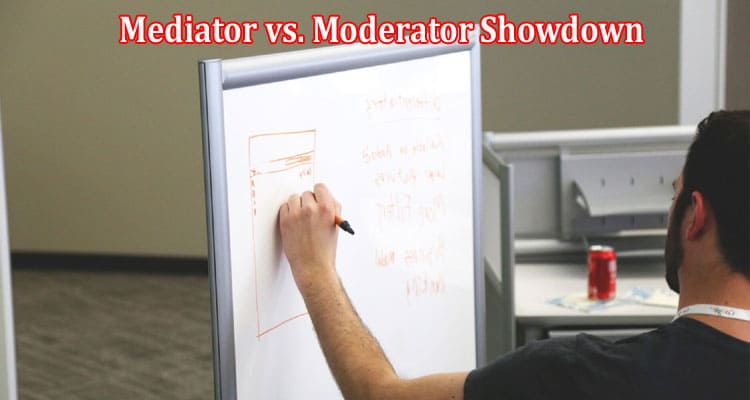Unveiling the Mediator vs. Moderator Showdown: Understanding their Impact
In research studies, mediator and moderator variables play important roles in understanding the relationships between variables and uncovering the complexities of causal relationships. Both mediator and moderator variables contribute to a deeper understanding of how and when certain effects occur. In this article, we aim to provide a clear understanding of the roles of mediator and moderator variables in research, emphasizing their significance in analyzing and interpreting study findings.
Mediator variables are intermediate variables that help explain the relationship between two other variables. They provide insights into the underlying mechanisms or processes through which an independent variable influences a dependent variable. Mediators help uncover the “why” or “how” behind observed associations. By identifying and examining mediator variables, researchers can gain a better understanding of the pathways and processes that drive the effects observed in their studies.
On the other hand, moderator variables influence the strength or direction of the relationship between an independent variable and a dependent variable. Moderators indicate the conditions under which the relationship between the variables being studied changes. They help identify boundary conditions and shed light on when and for whom certain effects are more or less pronounced. Moderators provide valuable information about the contingencies and contexts in which relationships hold true.
Understanding the roles of mediator vs moderator variables is crucial for researchers, as it allows them to go beyond simple associations and explore the underlying mechanisms and conditions that shape relationships between variables. By clarifying the distinctions between mediators and moderators and providing examples of their applications, this article aims to equip researchers with the knowledge needed to effectively design and interpret studies in various fields of research.
By delving into the concepts of mediator and moderator variables, researchers can gain a more nuanced understanding of the complexity of relationships between variables. This understanding not only contributes to theoretical advancements but also has practical implications in fields such as psychology, social sciences, and health sciences, where uncovering the underlying processes and conditions is vital for developing effective interventions and strategies.
Read more :- The Best Regions of Seville to Buy Real Estate for Family Living
In the following sections, we will explore mediator and moderator variables in more detail, discussing their definitions, characteristics, and methods of analysis. By the end of this article, readers will have a comprehensive understanding of these variables and be better equipped to incorporate them into their research designs and analyses.
Understanding Mediator Variables
A. Definition and Purpose of Mediator Variables:
Mediator variables, also known as intermediate variables or mediating variables, are variables that help explain the relationship between an independent variable and a dependent variable. They operate as a link or mechanism through which the effect of the independent variable is transmitted to the dependent variable. The purpose of mediator variables in research is to provide insights into the underlying processes or mechanisms that explain how or why the independent variable affects the dependent variable.
Mediators can be conceptualized as variables that come between the independent and dependent variables in a causal pathway. They help answer questions such as: “How does the independent variable influence the dependent variable?” or “What is the underlying mechanism that explains the observed relationship?”
B. Role of Mediators in Establishing Causal Relationships:
Mediators play a crucial role in establishing causal relationships by helping to explain the underlying mechanisms or processes through which an independent variable affects a dependent variable. While the independent variable has a direct effect on the dependent variable, the mediator variable acts as an intermediate step that accounts for this relationship.
Mediation analysis allows researchers to determine whether the effect of the independent variable on the dependent variable is fully or partially explained by the mediator variable. It helps uncover the step-by-step process through which the independent variable influences the dependent variable.
By identifying and examining mediator variables, researchers can gain a deeper understanding of the causal pathways and processes involved. This knowledge is essential for developing theories, informing interventions, and providing a more comprehensive explanation of the relationships observed in research studies.
C. Examples and Illustrations of Mediator Variables:
To illustrate the concept of mediator variables, let’s consider a hypothetical research study examining the relationship between exercise and mental well-being. The independent variable is “exercise,” the dependent variable is “mental well-being,” and a potential mediator variable could be “endorphin release.”
The study hypothesizes that exercise positively affects mental well-being. Mediation analysis can help explore whether the effect of exercise on mental well-being is mediated by the release of endorphins. The release of endorphins acts as a mechanism through which exercise influences mental well-being. By measuring the levels of endorphins and assessing their role in the relationship, researchers can determine whether endorphins mediate the relationship between exercise and mental well-being.
Another example can be found in a study examining the relationship between socioeconomic status (SES) and educational achievement. The independent variable is “SES,” the dependent variable is “educational achievement,” and a potential mediator variable could be “access to educational resources.” The study may investigate whether the effect of SES on educational achievement is mediated by the availability of educational resources. The mediator variable of access to educational resources helps explain how SES influences educational achievement through the provision or lack of resources.
These examples demonstrate how mediator variables provide a deeper understanding of the mechanisms or processes that underlie the relationships between variables. By identifying and analyzing mediators, researchers can gain insights into the “how” or “why” behind observed associations and contribute to the development of theories and interventions that target specific pathways or mechanisms.
Find Accurate Aleks Answers for Best Grades
Exploring Moderator Variables
A. Definition and Significance of Moderator Variables:
Moderator variables are factors that influence the strength or direction of the relationship between an independent variable and a dependent variable. Unlike mediator variables that explain the mechanism or process, moderator variables affect the conditions under which the relationship holds true. They provide insights into the boundary conditions and contexts in which the relationship between variables changes.
Moderator variables are significant in research because they help uncover the contingencies and nuances of relationships. They allow researchers to understand when and for whom certain effects are more or less pronounced. By identifying moderator variables, researchers can identify the factors that influence the relationship between variables and gain a more nuanced understanding of the phenomena under investigation.
B. Role of Moderators in Influencing Relationships:
Moderators play a critical role in influencing relationships between variables. They indicate the conditions or circumstances under which the relationship between the independent and dependent variables is strengthened, weakened, or even reversed.
Moderator variables can influence the strength of the relationship by amplifying or diminishing the effect of the independent variable on the dependent variable. They can also affect the direction of the relationship by changing the nature of the association (e.g., positive to negative or vice versa) depending on the specific values or levels of the moderator.
Understanding and examining moderator variables allows researchers to identify the factors that shape the relationship between variables and provides insights into the contexts or subgroups where the relationship is stronger or weaker. This knowledge is valuable for tailoring interventions, identifying boundary conditions, and advancing theoretical understanding.
C. Examples and Applications of Moderator Variables:
Here are a few examples of moderator variables in different research contexts:
- Gender as a Moderator: In a study examining the relationship between leadership styles and employee job satisfaction, gender can act as a moderator. The relationship between leadership style and job satisfaction may be different for men and women, with certain leadership styles having a stronger effect on job satisfaction for one gender compared to the other.
- Age as a Moderator: In a study investigating the impact of a therapeutic intervention on mental health outcomes, age can serve as a moderator. The effect of the intervention on mental health may differ across different age groups, with younger or older individuals experiencing different levels of improvement.
- Social Support as a Moderator: In a study exploring the relationship between stress and academic performance, social support can function as a moderator. The presence or absence of social support can influence how stress affects academic performance, with higher levels of social support buffering the negative impact of stress on academic outcomes.




